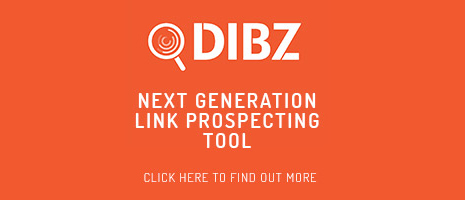John Mueller: You Don’t Always Need hreflang | Google Webmaster Hangout Recap

Google Webmaster Office-Hours Hangout is a way for SEOs all around the world to get search-related questions answered by one of Google’s very own Webmaster Trends Analysts – John Mueller.
If you haven’t had the time to participate in the hangout live or catch it on YouTube later on, don’t worry – we’ve got you covered!
In this edition of the Google Webmaster Hangout Recap, we’ll skim through the following topics:
- You Don’t Always Need The hreflang Tag;
- Can Negative Reviews Hurt Your Ranking On Google?
- Heading Tags Are Important – Regardless Of Their Level;
- Is Google Showing Fewer FAQ Rich Results Than It Used To?
Let’s dive right in!
You Don’t Always Need The hreflang Tag
A huge portion of this hangout was dedicated to the hreflang tag and how confusing the right usage of it can be.
Hreflang is an HTML attribute that you can use if you have multiple versions of a page for different languages or regions. It helps Google figure out which version should be served to a specific user.
However, there’s a difference in the way Google treats hreflang in a situation where there are different language versions of a website available, versus how it treats it when the language is the same, but there are still different versions (URLs) for different countries that use that language.
“Different language version is a lot easier than the same language – different countries. Different languages are almost one of those situations where I’d say, well, maybe you don’t even need to use hreflang, because people are automatically searching in your language and that matches that specific language version.” – explains John Mueller.
But what if you have a website that has different versions in a way that the language is the same, but each version is aimed at a different region? (For example, German for Germany, German for Austria, and German for Switzerland.) Even with the hreflang tag properly set up, there’s no guarantee that Google Search will manage to serve the right version to the user. If those pages are completely or nearly identical, Google might pick one version as a canonical and always serve that one. So, what do you do in this case? Here’s what John said:
“The easier you can make it for us to understand that these pages are specific to one country, the more we can follow that. So things like local phone numbers, local addresses, all of that can play a role there.”
So, to conclude and give you some extra tips:
- If you have your website available in several versions, each in a completely different language, check if people searching in language 1 are landing on the page that’s in language 1, as well as if users searching in language 2 are landing on the page that’s in language 2. If they are, you don’t really need hreflang. It’s still okay to use it, but Google has obviously figured it out on its own.
- If you have different versions for different regions but in the same language, you can build more local signals to help Google realize these pages are not the same after all, and that it’s important to treat them as separate entities.
- Ask yourself if you really need different versions for those regions that use the same language. If there is no specific reason to use that kind of setup – then don’t. Keeping things simple will help both users and Google to experience your website better.
Can Negative Reviews Hurt Your Ranking On Google?
Could a bad reputation a business has online affect how it ranks on Google? It turns out the algorithm might take negative reviews into account, but only if there’s a lot of them. Like, really a lot.
Here’s what was asked in the hangout:
“If you have a “bad” reputation online and you see a lot of negative stuff about your company… Would that hurt, potentially, your Google ranking for keywords? …Could Google look at that and say – Oh this is a bad company, we’re not going to rank it as well because they have a lot of negative reviews?”
John Mueller was pretty direct in his answer here, stating that having some negative reviews is absolutely normal and not something you should be upset about – Google won’t mind anyway. However, if your website has predominantly bad stuff written about it, Google’s algorithm might pick that up and it could hurt your rankings.
Here’s exactly what John said:
“If you’re talking about, there are a handful of people that are upset, and they’re writing these random things online, and there are lots of people that are happy with your site, and everything is normal, then that’s not something I would really worry about.”
Then a bit later, he added:
“If it’s something where we see that everything is really bad about this site, that might be something that our algorithms try to pick up on… It really needs to be a strong signal for us to say – OK, we really can trust kind of this problematic information and apply it appropriately for the site’s ranking.”
So, if your site has a couple of negative reviews here and there, keep calm – that’s perfectly normal! And if your site has a ton of them, maybe SEO shouldn’t be the first thing to worry about in that case, to be honest. Focus on making your users or customers happy and improving your content/products/services first.
Heading Tags Are Important – Regardless Of Their Level
One publisher asked an interesting question about the heading tags, and John’s emphasized their importance in his answer.
This was the question: “A page without an H1 title – will it still rank for keywords which is in the H2 title?”
“Of course” – answered John. Then went on to add:
“Headings on a page help us to better understand the content on the page. Headings on a page are not the only ranking factor that we have. We look at the content on its own as well. But sometimes having a clear heading on a page gives us a little bit more information on what that section is about.”
Using heading tags on your pages is very important. It helps Google understand more easily what your page and its parts are about. Which heading tag you use, however, is not. Here’s what John said:
“When it comes to text on a page, a heading is a really strong signal telling us this part of the page is about this topic. And whether you put that into an H1 tag or an H2 tag or H5 or whatever, that doesn’t matter so much. But rather kind of this general signal that you give us that says… this part of the page is about this topic. And this other part of the page is maybe about a different topic.”
So, don’t be lazy and always add heading tags to your texts. Although users won’t see them, Google will!
Is Google Showing Fewer FAQ Rich Results Than It Used To?
Properly marked up Frequently Asked Questions pages may be eligible to have a Rich Result on Google Search. Rich Results take up extra space in the SERPs – that’s why you, as a site owner, would want to have as many of those showing up for your site as possible.
In the hangout, John touched on a topic of criticism that’s seen in some SEO communities online – Google showing fewer FAQ Rich Results than it used to.
“From my point of view, that’s kind of natural development, where we try to find the right balance between showing these everywhere and showing these for pages where it kind of makes more sense… Suddenly everyone has added FAQ markup to their pages and we can’t show every search result with FAQ markup. So we have to kind of fine-tune which ones, which queries, which pages we would be showing the FAQ rich results type for.”
That means that even if your FAQ page is properly marked up, it might not automatically be shown as a rich result. What’s the best you can do in this situation? Here’s John’s advice:
“In general, if the markup is on the pages and is findable with the Rich Results Test, then that’s what you should be aiming for.”
Just do your part well and hope Google will figure out its own part well, too.
See You Again Soon!
It was a pleasure having you with us, we hope you’ve gained valuable SEO insights from this post, and see you again next time!
If you wish to watch the whole Hangout videos, you can do it here:


 SEARCH
SEARCH

